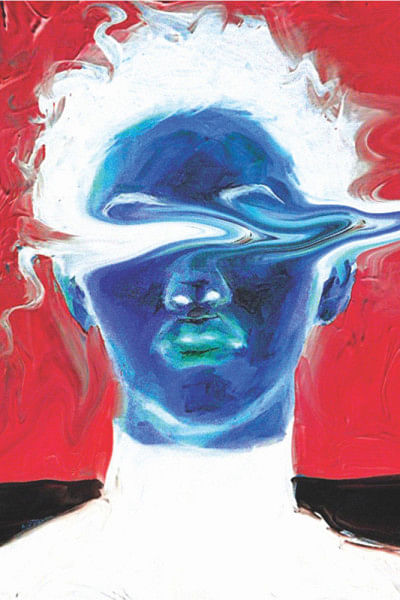“Act like a girl!”

I am 25 years old, from Bogra. Biologically I am a woman but I cannot declare myself as gender conforming. Nor do I have an exact answer to give when asked whether I am gender non-binary.
When I graduated from university three years ago, I was the first female member of my family to do so. My family watched me with joy in their hearts and smiles on their faces.
These incidents happened right after. I went back home and took up a job with a local English medium school but my neighbours were not happy to see me come back. They whispered, stared and mocked me outright. The reason? The clothes I wore and how I carried myself. Not satisfied with saying things to my face, they bullied my younger sister, 15-year-old Binu. She would come home in tears.
One evening she ran up to me. "Apu, Amin Uncle asked me whether I want to become like you!" As a part of my external expression, I wear jeans under my kameez.
Soon, I began noticing that the members of my community were meeting regularly in the afternoons. On one such occasion when I was walking around my neighbourhood, I heard Amin Uncle telling those around him, "Look at her! I think she will marry a hijra." I ignored him.
On my way to work one cold morning, I was crossing Amin Uncle's house and I heard raucous laughter. Then I heard my name. I decided, on the spot, to go and confront them. I found that Amin Uncle, his wife and his sisters-in-law were talking about me.
They were surprised to see me. I simply asked, "Would you repeat what you were saying about me just now?" They were taken aback but only for a moment.
Amin Uncle's wife suddenly sprang at me and shouted, "Who are you that we have to answer to you?" Angry, I yelled back, "Why are you shouting? Can't we talk?"
The shouting escalated into a fight. I insisted that they not touch me. This only enraged Amin and his wife who started shoving me around. His son, nephews and aunts then joined in. The fight became a beating. I was alone, trying to defend myself and fell to the ground. I was punched in the head and kicked around by Amin Uncle, his son and nephew. Nobody intervened. This was not 10 metres from the main road and a crowd of around 20 had gathered.
After this went on for a while, a neighbour ran to my home to fetch my family. No one was home, except for my mother and my cousin, Asha. They came and dragged me from the road and helped me stand. Asha immediately took me to the police station to file a case against the family. I was not bleeding, but I had swollen bruises all over.
The police lodged a general diary and came to my area two days later. Amin's wife and sister-in-law then produced medical certificates claiming they were suffering health problems after getting beaten up by me!
"How could I single-handedly have fought five adults?" I asked. A crowd gathered to watch but said nothing. I had no witnesses except my mother's word that they had beaten me.
Amin's family went on to tell the police that this was entirely my fault because of the way I dressed and behaved. I was crying at this point. The police asked us to "mutually resolve" the problem. A case was filed against me and handed over to the local ward commissioner.
We chose arbitration, but the hearing, in mid-January, proved disastrous. The ward commissioner swore and yelled at Asha and I. I made the mistake of using my phone and the commissioner thought I was recording him. Angered, he hurled more abuse at me, "Are you so clever that you're going to file a case against me for being biased against you? Do you think you're powerful only because you're educated? What sort of woman are you?"
The room fell silent. He went on to scold and insult my father as well because he is merely a rickshaw puller. We lived in a tin-shed house, so we were perhaps singled out for our class differences.
The hearing then continued. He asked both parties to explain what had happened. One of my aunts defended me. She described my life over the years—how others in our community had never liked me because of my strong personality and ambition."
The commissioner now stood up and gave his verdict—which was that both sides were at fault for fighting. The solution was to say sorry to each other, which we had to do then and there.
This was not the first such incident. I have been treated like this since I was a child. My father scolded me afterwards that he had been insulted in public only because of me. He said that it was my fault for confronting and not ignoring them.
Who even cared how I felt, and still feel, after this?
M Hussain left Bangladesh shortly after the incident and is now pursuing a PhD in Atmospheric Science and Engineering.

 For all latest news, follow The Daily Star's Google News channel.
For all latest news, follow The Daily Star's Google News channel. 



Comments